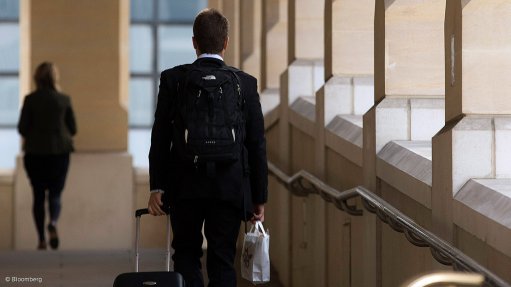
Photo by: Bloomberg
Sweeping changes, including personal robots and sensory-based tracking, could become an increasing part of our lives, the Growth, Innovation and Leadership (GIL) 2014 Africa conference in Cape Town has heard.
“In many areas, there is a complete shutdown of old techniques and processes. Business models often collapse when everything goes digital,” information and consulting firm Frost & Sullivan senior partner Dorman Followwill told delegates on Thursday.
He advised executives to be open to major change and innovation or risk going the way of companies like Kodak, which had been an industry leader for decades.
“Kodak was innovative for decades. But it was a slow-moving beast and was never able to change.”
Followwill also cited the collapse of home movies giant, Blockbuster, which started folding when it was replaced by DVD by mail. This was, in turn, overtaken by video streaming on demand.
In contrast, old and established companies like American Telephone and Telegraph (AT&T) had taken steps to transform, offering a combination of online services and retail stores.
Followwill warned that Facebook could ultimately be heading in the same direction as MySpace.com, which closed after being immensely popular for a while.
He said research by Princeton University had shown that Facebook could lose 80% of its 845-million users by 2017.
"When young people decide Facebook is no longer cool, they will leave in their millions."
GIL Africa 2014 is focusing on how companies need to stay on top of change and be constantly aware of new trends in society.
“We need to be prepared to meet the challenges as opposed to being overwhelmed by the juggernaut of change,” stated Followwill.
He said much of the change globally had been brought about by the massive “explosion” of data.
“Ninety per cent of the data in the world has been created in the last two years alone.”
While conceding that Africa may be far off the pace compared to the US and Europe, he noted that there were plenty of opportunities for countries on the continent to introduce change.
Urbanisation was making a difference, with Followwill forecasting that urbanisation in Africa would create $1.3-trillion in opportunities by 2020.
He added that there were opportunities for African cities to integrate smart technology, smart energy and smart buildings.
DHL Express sub-Saharan Africa MD Charles Brewer, meanwhile, commented that his work in Africa had shown that people were very open to change.
He also debunked the negative myths perpetuated by many expats working in Africa. “People here have drive, integrity and passion.”
Brewer told delegates at GIL Africa that the key to doing business on the continent was to partner with local distributors.
“If you take the very traditional business model and try to roll it out in Africa, you will fail very fast.”